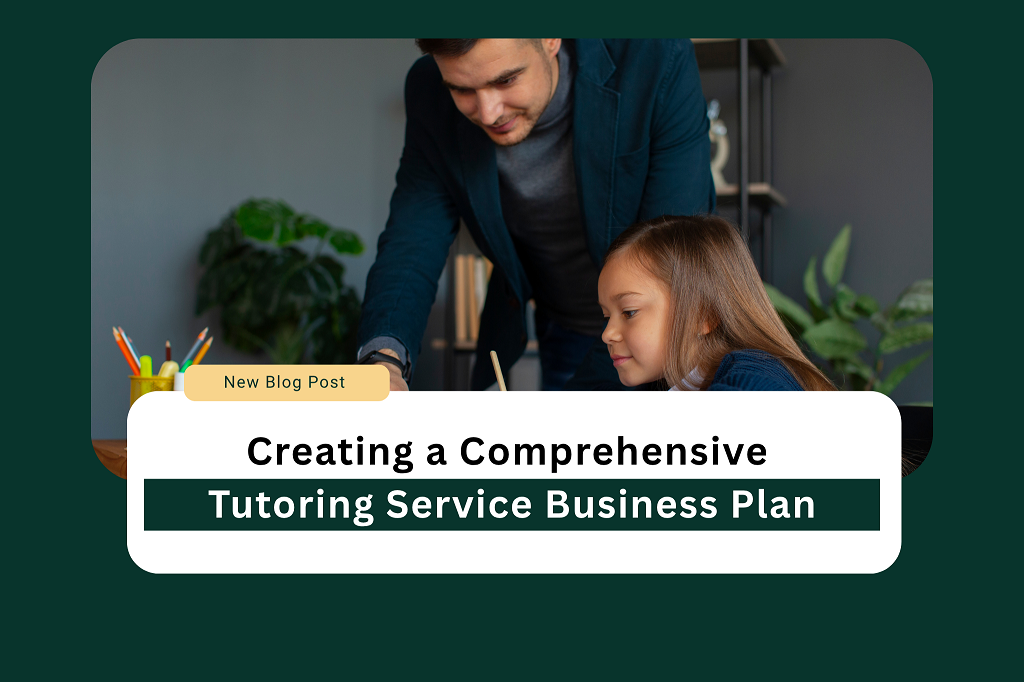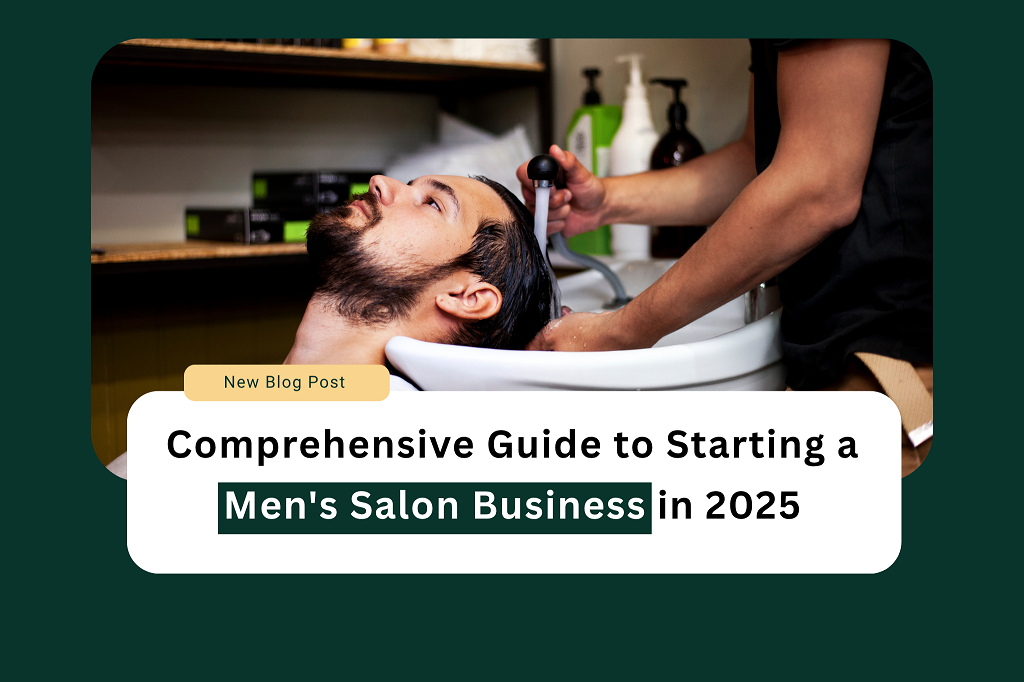Introduction
The current educational market provides excellent prospects for starting a tutoring service that brings value to students and generates business profits. According to Global Market Insights, the tutoring industry expanded significantly because its 2023 market value surpassed $123.8 billion. A properly structured business plan for tutoring services functions as your guide to achieving success within the expanding market. The following guide will explain how to develop an extensive plan that ensures success for your tutoring business.
Step 1: Shaping Your Vision: The Executive Blueprint
Create a powerful executive summary that defines your educational excellence goals as your first step in developing your tutoring service business plan. The Education Industry Association indicates that tutoring businesses achieve success when they either concentrate on specific subject areas or provide full academic support. Decide on the core aspect of your business value, which could include test preparation and subject-specific tutoring or specialized learning support. Write the executive summary section at the end since you need to finalize it after completing all other business strategy components.
Step 2: Understanding Your Educational Landscape: Market Deep Dive
Your tutoring service requires deep knowledge about the students you want to serve. Research indicates that supplementary education investment stands ready for 71 percent of parents who wish their children to receive it. Education service providers must examine community data about students and income distribution along with educational requirements in their area. Analyze existing tutoring programs to find areas of deficiency before determining which service gaps your company will address. The Tutoring Association shows that tutoring businesses that specialize in particular market portions, including college entrance exam preparation and STEM subjects, achieve 25% faster growth than general tutoring services.
Step 3: Crafting Your Educational Arsenal: Service Portfolio
Describe the tutoring programs along with the teaching methods you will use. What format of instruction will you provide between one-on-one mentoring group teaching and online tutoring? Research studies from the educational field demonstrate that personalized learning approaches produce a 40% improvement over traditional teaching methods. Detail teacher how you will build curriculums along with your assessment procedures and the mechanisms to track progress. Traditional tools and digital resources should be combined to raise student involvement while gaining better academic results.
Step 4: Spreading the Word: Building Your Educational Brand
You need to create a thorough marketing strategy that will draw in and maintain a client base. A study shows parents use recommendations from others to select tutoring services since 83% of them do this. The marketing strategy should focus on building school relationships through events and utilizing social media networks, as well as participating in educational activities. Plan the display of student achievement examples along with tactics to keep active engagement with the local community.
Step 5: Behind the Scenes: Orchestrating Success
Your tutoring service requires detailed operational procedures that should be established. Your operational procedures should include steps for tutor recruitment and training as well as scheduling methods and quality control systems. The combination of standard teaching practices with consistent student performance evaluations leads tutoring services to maintain 30% more students, according to research. Explain how you will manage facilities if you provide in-person sessions or describe the online platform you use for virtual services.
Step 6: The Numbers Game: Financial Roadmap to Success
You must create thorough financial projections for your tutoring enterprise. The financial plan includes the initial investment expenses together with operational costs and estimated revenue figures. The Education Industry Association demonstrates that tutoring services that succeed reach profitability between 12-18 months. Your document should contain full information about pricing models along with payment processes and projected growth plans. Your business should generate money through individual sessions while also offering group classes and specialized workshops.
Step 7: Digital Revolution: Embracing Educational Tech
Using technology stands as an essential requirement in the present digital era. Describe the strategies you will utilize for training management systems as well as virtual tutoring platforms alongside online scheduling systems. The combination of in-person and online tutoring features led tutoring services to attract a 45% boost in their client base throughout recent years, according to industry statistics. Present your approach to safeguarding student information together with digital security measures.
Step 8: Excellence in Action: Setting the Gold Standard
Quality control measures for your tutoring service must be defined in clear terms. Your service should conduct scheduled evaluations of tutoring performance that combine student progress tracking with feedback mechanisms from parents. Standardized metrics show that effective tutoring services achieve minimum student improvement rates of 75% in their operations. Outline your strategies for ongoing improvement alongside your preparedness to adjust service to meet altering educational requirements.
Conclusion
A business plan for tutoring services needs proper structure to achieve success in this expanding industry. Your business plan must stay current through regular assessment so it effectively tracks educational trends while meeting market requirements. A tutoring service becomes successful when it maintains an educational standard while operating efficiently to deliver success for students.
We’d love to hear about your experiences in the tutoring industry! Have you encountered specific challenges while developing your tutoring service business plan? Share your thoughts in the comments below, and don’t forget to share this article with other aspiring educational entrepreneurs on your social media networks. Your insights could help others navigate their journey to success in the tutoring industry.
FAQs
What initial investment is needed to start a tutoring service?
A small tutoring service requires startup investments between $5,000 and $20,000. The startup costs for a small tutoring service range from $1,000 to $2,000 for educational materials and $2,000 to $3,000 for marketing expenses, while insurance and legal fees cost $1,000 to $2,000 and technology setup amounts to $1,000 to $3,000.
What student-to-tutor ratio ensures that quality standards remain high?
The best practice guidelines indicate tutors should handle between 15-20 students for individual sessions when dedicating 2-3 hours each month to each student. When running group sessions, the ideal ratio between students and tutors should fall between 1:4 and 1:6 to maximize their learning outcomes. Educational Industry Association research proves that tutors who limit their student cases to this ratio achieve 35% more effective student results than tutors handling larger student caseloads.
What level of profit margin does an average tutoring service typically reach?
Tutoring services with effective management strategies reach annual profit margins ranging from 30% to 40%. Online tutoring platforms achieve superior profit margins, which range between 40-45% since they operate with reduced overhead expenses. Tutoring service profitability depends on pricing strategy together with tutor compensation at 50-60% of session fees, plus 40 and 45% per sessional efficiency.
What approach can I use to decide on proper pricing levels for tutoring services?
Your pricing decisions should consider the three elements of local market rates from competitive research in your area combined with tutor expertise that can raise rates 20-30% and pricing group sessions at 40-50% less than individual rates. Your pricing structure should differentiate between subjects of varying difficulty levels along with different qualifications of tutors.
Which combination of skills should I look for in tutors before making my hiring decision?
Tutoring services normally seek candidates who meet these criteria: possess an academic background in the tutoring subject combined with at least two years of teaching experience and excellent communication abilities. Services that lead their industry show that tutors holding teaching certificates maintain student retention at 25% above other tutors. Every applicant must undergo background checks and reference verification even when they have the required qualifications.
Read More : Strategies In Digital Marketing









